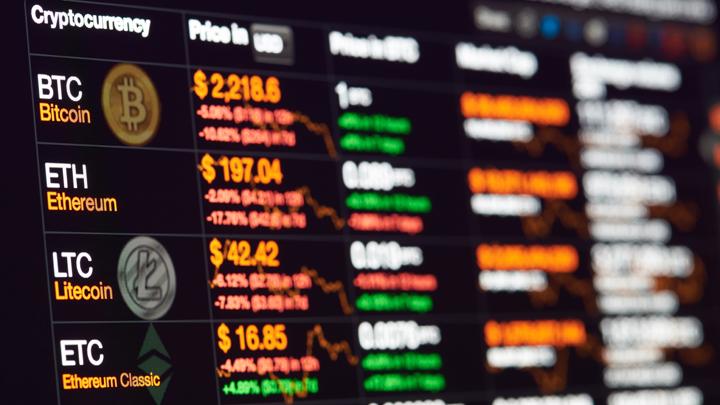Cryptocurrency Investment Is a Risky Business
Translator
Editor
2 August 2023 16:06 WIB

TEMPO.CO, Jakarta - THE Futures Exchange Supervisory Board known as Bappebti or CoFTRA has finally launched the state-run crypto exchange. On July 17, the agency appointed Bursa Komoditi Nusantara or Commodity Futures Exchange (CFX) as the operator and Kliring Berjangka Indonesia as the clearing house. Three days later, Tennet Depository Indonesia was appointed as the crypto asset storage custodian.
On Friday last, July 28, Trade Minister Zulkifli Hasan inaugurated the CFX in Jakarta. CoFTRA Chief Didid Noordiatmoko said crypto trading has been in operation in Indonesia since 2010. The government has decided that it is time to regulate and supervise the market as it has the potential to run into problems like in 2018. As of June, Indonesia has 17.54 million registered cryptocurrency investors with the transaction value reaching Rp306.4 trillion in 2022.
The value is expected to fall this year as the market is in ‘a crypto winter’—a term for a long period of price declines. “Crypto experts said (the market) would rebound in 2024,” Didid told Tempo on July 21.
In an approximately one-hour-long interview, Didid explained how CoFTRA began regulating cryptocurrency trading, challenges in monitoring traders, crypto taxes, the concept of the exchange, the composition of the market which is dominated by young investors and the agency’s attempts to increase the public’s crypto literacy, particularly regarding the risks in investing in this commodity.
How is crypto business flourishing in Indonesia?
It was already present in Indonesia in 2014, or even 2010. At that time, the State Intelligence Agency and other institutions cautioned the government that the market needed to be regulated. Who should regulate it? CoFTRA at that time took the initiative to take the issue here and there. The Financial Services Authority (OJK) refused to be involved because it is not a currency and it cannot become a currency because the means of payment in Indonesia is rupiah. So did Bank Indonesia. But the government at that time already saw crypto trading as a potential threat that could create problems.
Did it create problems in other countries as well?
Yes. That’s why it also has the potential to become a problem in Indonesia. It can cause losses to the public, (it can be used) for money laundering and so on. A meeting at the Coordinating Ministry for the Economy in 2018 agreed that the government must intervene and gave the mandate to the trade minister to regulate and oversee crypto trading as an asset, not currency. Later, the Trade Minister Regulation No. 99/2018 was issued and tasked CoFTRA with the job. The objective is to give protection to the public. The Trade ministry actually has two duties. First, to encourage businesses so as to push the industry forward. Second, to protect the public (consumers). Particularly in crypto trading, the focus is to protect the public.
What about the protection for businesses?
We must still prioritize business certainty but protection is more for the public given the asymmetric information. Businesses usually understand crypto very well whereas many people are only jumping on the bandwagon out of FOMO (fear of missing out).
What is the ecosystem like?
The ecosystem consists of the public who are investors, traders who sell the assets, the exchange, and the clearinghouse and the custodian. People who wish to invest will buy from traders but their transaction must be facilitated by the exchange. Afterward, buyers will settle payments through the clearing agency. Upon delivery (of the good), the clearinghouse will make payment (to the traders). Why? To prevent fraud where traders flee without delivering the good. Like on Tokopedia (an online shopping platform). It prompts buyers to click ‘done’ after the latter receives purchased goods. Only after the delivery is complete, will Tokopedia transfer the money to the seller. Then there is the depository service. Crypto assets do not have forms so it has to be clear who keeps them. The depository stores them. We are talking about technology here to make oversight and consumer protection clear. So, the separation of functions will allow checks and balances to ensure effective oversight.
How was the trading monitored before the exchange?
People directly deal with traders. We ask for daily transaction reports from each trader to make sure that there are no fraudulent transactions. Who keeps the goods? So far traders keep them. So, it has been traders who sell, and hold the money and the assets. I always pray that traders are in good health.
Or hope they won’t cheat?
Yes. I always pray they are healthy. I have heartburn whenever problems arise. I immediately felt nauseous when the Zipmex case happened. Zipmex is problematic. They keep the money, they keep the assets that belong to the (buyers). If they disappear, I’m done. Because there’s no ecosystem.
(Zipmex, a Singapore-based cryptocurrency trading platform, experienced cash flow problems and suspended withdrawals by customers in July 2022. The company later underwent restructuring. Zipmex is one of the crypto traders that acquired a business permit from CoFTRA.)
What are the most common complaints from investors?
Actually, there are relatively no complaints. Complaints were mostly about Luna. Like, “How come the value keeps falling?” In that situation, we couldn’t do anything because that’s market fluctuation.
(Last year, the prices of Terra-Luna and TerraUSD plunged tremendously. The US Securities and Exchange Commission charged Kwon Do alias Do Kwon, a South Korean citizen and the founder of Singapore-based crypto company Terraform Labs for manipulating the prices of the two crypto assets causing investors to lose more than US$40 billion.)
It should be seen as a risk?
That’s an investment risk. Don’t expect profits only from investments. This investment is high risk with high returns.
How was protection given before this?
Physical on-site (direct) and off-site (indirect) monitoring, daily transaction reports. There’s no holiday. Any time of the day. People usually make transactions at night via computer or mobile phones.
Read the Full Interview in Tempo English Magazine






















